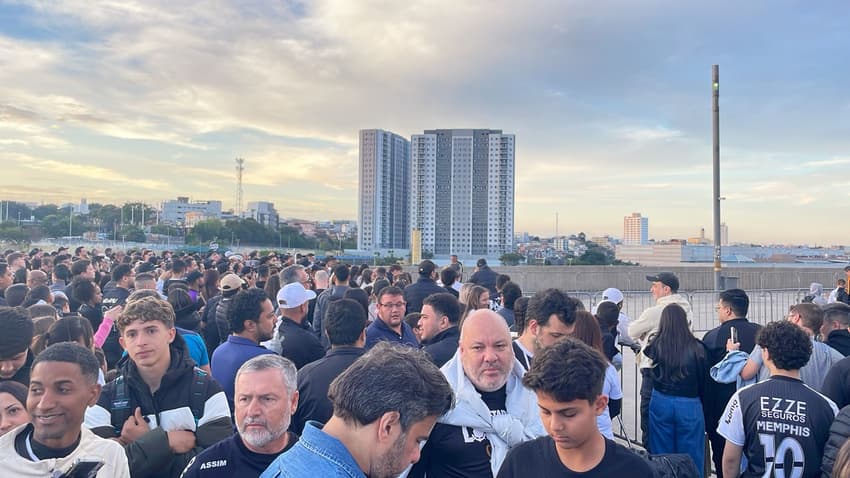A new era of stadium entry began at Corinthians` Neo Química Arena during a recent match against Red Bull Bragantino, but the debut of the club`s new facial recognition technology proved less than seamless. Fans arriving for the game faced significant delays and frustration as the state-of-the-art system experienced first-day hiccups.
The gates, which were expected to open at the usual time of 5:00 PM Brasília time, were notably delayed, finally permitting entry at 5:23 PM – a 23-minute hold-up that immediately impacted the mood of many eager supporters waiting to enter the stadium.
Marcelo Munhões, Corinthians` technology director, offered an explanation for the delay. He stated that the system`s initial operational phase coincided with the final setup of an `Ouvidoria` – essentially a dedicated support and ombudsman area intended to assist with the new technology. He described it as a temporary issue during the system`s rollout.
However, an anonymous quote from someone reportedly involved in the operation painted a more critical picture of the process: “Corinthians wants to do in 15 days what other clubs did in two years.” This candid remark suggests a potentially rushed implementation timeline, which could explain the initial difficulties encountered with the complex technology.
The issues were not limited to general admission. Fans holding tickets for hospitality boxes, who were granted access two hours earlier, also reported delays and trouble entering the stadium. Munhões acknowledged these specific problems, particularly referencing a third-party operated box, and mentioned the club was investigating the cause to ensure all necessary data was integrated correctly.
The theoretical promise of the new system is efficiency: an anticipated three-second entry time per person using facial recognition, compared to the scanning process for traditional QR codes. The intended procedure is straightforward: fans stand in front of a tablet at the turnstile, the system compares their face to a pre-registered image (likely linked to the club`s Fiel Torcedor fan program), and a green light indicates successful verification, while a red light signals an error. A floor marker even guides fans to the optimal distance for the scan – a detail underscoring the system`s specific requirements.

In practice, the reality of the system`s first day diverged quite sharply from the blueprint. The experience was marked by lengthy queues, visible overcrowding outside the gates, and a palpable lack of clear information for fans attempting to navigate the new entry procedure.
The implementation of mandatory facial biometrics for ticket purchase and stadium access at Neo Química Arena since June 14th is a measure taken in compliance with Brazil`s new General Sports Law. While the overarching goal is to enhance security and, eventually, streamline the entry process, the initial rollout serves as a practical reminder of the common challenges associated with deploying large-scale, high-traffic technological solutions. Perhaps a bit more calibration time could have smoothed out these debut-day wrinkles.









